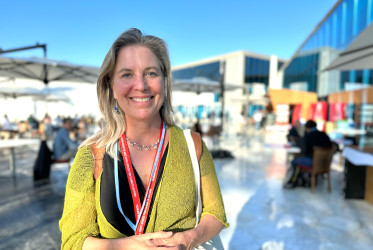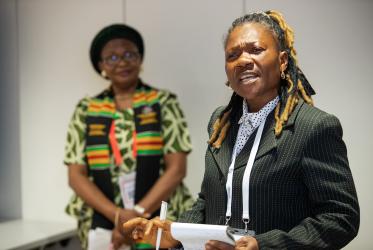Displaying 61 - 80 of 174
HIV and AIDS Civil Society Networks and the Faith Sector
Lessons Learnt from Strategic Engagement in India, Dominican Republic, Indonesia, and Jamaica
31 January 2023
Pandemic and pedagogy: what are the valuable lessons?
21 December 2022
Neddy Astudillo at COP27: “We still have the power to protect life”
18 November 2022
Christian Brooks: “Faith and climate really go hand-in-hand”
14 November 2022
Walk the Talk
A Toolkit to Accompany the "Roadmap for Congregations, Communities and Churches for an Economy of Life and Ecological Justice"
09 November 2022
Répondre aux besoins humanitaires en Ukraine
27 September 2022
Assembly workshop looked toward ending AIDS epidemic by 2030
19 September 2022
Pan-African women tell stories that celebrate who they are
15 September 2022


















